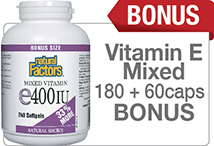
Best Collagen Supplement
Updated Apr. 11th, 2023 | Read Time: 9 Minutes | What You Will Learn:
- Collagen Loss
- Best Collagen Supplement Uses
- Types of Collagen
- How is Collagen Made?
- How is Collagen Broken Down and Used by the Body?
- The Best Collagen Supplement: Bovine vs Marine Collagen
- The Best Collagen Supplements
- Collagen FAQs
Collagen is one of the major proteins found in the soft and connective tissue of humans and other mammals. As a supplement, collagen acts as a source of amino acids and is used in making and repairing connective tissue all over the body. Thus, collagen is used to repair skin that is damaged by wounds and burns; it can also help support healthy cartilage, ligaments, and tendons. Natural health practitioners commonly recommend collagen supplementation for joint injuries, arthritis, joint inflammation, skin ulcers, burns, wounds, and joint strains and sprains.
Collagen Loss
Collagen makes up about 30% of the total protein in your body. As you age, your body makes less collagen. Each year, you produce 1% less collagen than before, which contributes to wrinkles and joint pain. Those who smoke, eat a lot of sugary or refined carbohydrates, or are exposed to excessive amounts of sunlight may also be at risk for decreased collagen production. If you're wondering how collagen is made, what the different types of collagen are, and the major differences between collagen sources, keep reading. In this article, we will cover the many uses for collagen, including for joint health and skin health, the appropriate doses, and answer readers' frequently asked questions.
Best Collagen Supplement Uses
Best Collagen Supplement for Cartilage and Joint Support
Cartilage is the connective tissue pad that acts as a cushion and eliminates friction in your joints. It is the cushion in your knees and other large joints, and it forms the pads that space each vertebra to help protect the spinal cord. Wear-and-tear injuries occur in the joints and cause less support, less cushioning, and more friction. The breakdown of cartilage is responsible for erosive conditions such as osteoarthritis.
Studies have shown that type II collagen derived from bovine sources provides the greatest benefits for joint health. In one study, 30 people with osteoarthritis of the knee received 5 grams of bovine collagen daily for 13 weeks. After this time, all participants experienced improvements in their symptoms.
For more information, please see our osteoarthritis article. Interestingly, the presence of the stress hormone cortisol in the blood promotes the breakdown of collagen into its amino acid building blocks. To help avoid this, please see our article on stress.
Best Collagen Supplement for Skin Health and Appearance
Collagen is one of the main building blocks of our skin. The structure of collagen actually draws water into the tissues, resulting in firm, plump, and youthful skin. Thus, a lack of sufficient cartilage can result in the wrinkling and sagging of the skin. Collagen is often added to skin care products for topical application against wrinkles and age spots. It promotes elasticity, giving you a firm foundation for a healthy-looking skin tone. One study found that women who took a supplement containing hydrolyzed type I collagen derived from tilapia showed fewer wrinkles and improved moisture retention in their skin compared to those who took a placebo.
In addition to keeping your youthful glow, the presence of collagen heals skin ulcers by repairing the skin and increasing the integrity of the arteries and veins. Lastly, because collagen provides the building blocks for skin repair, it can speed up the healing of most wounds.
Best Collagen Supplement for Gut Health
Although, to date, there has not been much human research on collagen and gut health, collagen is rich in amino acids that directly support gut health. You may have heard of glutamine, which is an amino acid that is often used as a supplement to heal "leaky gut." Glutamine helps build connective tissues and heal the gut's lining. It can also support healthy gut microbiota (aka gut bacteria), which can help to strengthen the gut wall. Glycine and proline, two other amino acids, help seal and heal the gut lining when it is damaged, improving digestion. Arginine is another amino acid involved in wound healing in the gut.
Types of Collagen
There are at least 28 types of collagen in the human body. They are listed as roman numerals. The three main types of collagen are types I, II, and III, which together make up around 90% of your body's collagen.
Types I and III Collagen
Type I collagen is the type found in over 90% of the body. It is found in skin, tendons, vascular ligaments, organs, bones, and scar tissue. In fact, collagen type I is the main organic component of the bone. Type III collagen is commonly found alongside type I collagen in the human body. These types of collagen can also be used to provide the building blocks needed to repair damaged ligaments and tendons. For more information on these uses, please see our Types I and III Collagen article.
Type II Collagen
Over 50% of cartilage protein is made of type II collagen. This type is also commonly called hyaline cartilage. Cartilage is the tissue that eliminates friction in your joints. Because of this, type II collagen is often used as a supplement to provide the building blocks for the protection and repair of cartilage in the body. This allows it to be used to help treat wear-and-tear injuries and erosive joint conditions like osteoarthritis. For more information, please see our Type II collagen article.
Type IV Collagen
This particular type of collagen is found in the body's tissues and actually forms the vast majority of the basement membrane. This means that it forms the main connections between the bases of the cells in your tissues. This allows type IV collagen to support the proper healing of wounds.
Collagen Boosters
For those who are vegan or have food allergies, collagen boosters derived from plants can be an excellent alternative to traditional animal-based collagens. Collagen boosters help your body make more collagen. Collagen-boosting nutrients include silica, vitamin C, biotin, grapeseed extract, and hyaluronic acid.
How is Collagen Made?
Marine Collagen
Marine collagen is extracted from the collagenous connective tissue found in fish skin, bones, cartilage, and fins. The scales used for marine collagen are usually by-products of the fishing industry, so most marine collagen products are sustainable choices. When shopping for marine collagen supplements, look for a supplement made from deep-sea wild fish that are sustainably farmed.
Bovine Collagen
Bovine collagen is extracted from cow hides. As with marine collagen, bovine collagen may be extracted from cow hides that are by-products of other industries.
Peptan-collagen is a superior raw material. It's derived from the bones and cartilage of grass-fed cows, which results in a higher percentage of peptides—small chains of amino acids that your body can easily absorb. Your body converts these small chains into larger functional proteins once they've been exposed to the presence of water.
Once extracted, both marine and bovine collagen is then processed and purified to produce collagen powder. Most hydrolyzed collagen supplements you'll find will be broken down into smaller fragments (which are short chains of amino acids) called peptides. The reason for this is that it makes either type of collagen easier to digest and has better bioavailability than non-hydrolyzed collagen.
How is Collagen Broken Down and Used by the Body?
The body doesn't break down whole collagen proteins and deliver them directly where they need to go. Instead, it breaks down collagen into individual amino acids and uses those amino acids as needed.
The Best Collagen Supplement: Bovine vs Marine Collagen
Bovine and marine collagen contain some differences with respect to the amino acids contained in each source:
- Marine collagen contains more of the amino acid arginine, which is vital for tissue repair. Marine collagen also contains more of the amino acids aspartic acid and glutamine, both of which are known to be vital for tissue repair.
- Bovine collagen contains more glycine, proline, and hydroxyproline—amino acids that the body uses for protein synthesis. Bovine collagen contains less arginine, which is necessary for wound healing and tissue repair.
The best source of collagen for you will often depend on your diet: people who don't eat meat prefer marine collagen, while people who eat animal products prefer bovine collagen.
The Best Collagen Supplements
How can I take collagen?
Collagen comes in a variety of forms, including encapsulated powder and liquid. They are usually combined with other joint-repairing nutrients and vitamins. Sometimes cartilage is directly supplemented to be a source of collagen, particularly type II collagen. When found individually, type II collagen is found as a component of pain-relieving and anti-inflammatory formulas. It is often added to anti-aging skin care products. Type I and III collagen are also available and should be used after good results are found with type II to further rebuild damaged joints or tissues. Depending on the severity of joint destruction, collagen may need to be taken for a few months before results are seen.
Collagen Dosing
Generally, a beneficial dose of collagen is 6–12 grams per day. Research has shown benefit from taking higher doses of collagen, and some practitioners may recommend a higher dose depending on a number of factors.
Collagen Precautions
People allergic to bovine or marine collagen may experience reactions if they use this product. However, no reports of adverse reactions associated with taking bovine or marine collagen for cosmetic purposes or for general health benefits have been reported. Therefore, this ingredient does not pose any significant health risks when used appropriately by people who are otherwise healthy.
Collagen FAQs
What is the difference between collagen and gelatin?
Collagen and gelatin have similar nutrient profiles and share many health benefits. Although gelatin is the degraded form of collagen, either form is easy to digest. Because collagen supplements have been hydrolyzed in order to make them easier to mix and digest, they can be easily mixed into both hot and cold beverages, whereas gelatin generally only mixes into hot beverages.
Is collagen the same as protein?
Although collagen is considered a protein, it has different amino acids than what you would find in a protein powder. The amino acids found in collagen make it uniquely beneficial for skin and joint health, while the amino acids found in protein powder are necessary for maintaining lean muscle mass and promoting satiety between meals. Whether you choose a collagen or protein supplement (or both!) will depend on your health goals.
How much collagen should I take each day?
Most collagen products start with doses between 5 and 10 grams. However, some practitioners may recommend that you take a higher dose, as research has shown benefits at doses of 15 grams.
Is collagen safe?
Collagen is one of the safest supplements you can take. Most people can take collagen without side effects. However, anyone who is allergic to either bovine or marine products should avoid collagen made from those respective sources.






















It outlines the various options available and their potential benefits. By presenting this information, the article empowers readers to make informed decisions about incorporating collagen into their diet. While the primary focus is on health and efficacy, it's worth noting that responsible sourcing and production of collagen can align with sustainability principles, ensuring that consumers choose products that are both beneficial for them and environmentally responsible.
Hello Rachel,
Thank you for highlighting the key points of the article. The comprehensive coverage of various options and their potential benefits allows readers to make well-informed decisions regarding the inclusion of collagen in their diet. It is commendable that the article emphasizes health and efficacy as primary considerations. Additionally, it is worth noting that responsible sourcing and production of collagen can align with sustainability principles, enabling consumers to choose products that are not only beneficial for their health but also environmentally responsible. This holistic approach promotes both personal well-being and environmental consciousness.